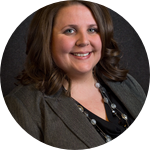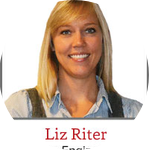About This Project
To ensure exceptional and innovative products/processes, engineers must represent a diversity of backgrounds. Women are underrepresented in the field which has the potential to be detrimental to engineering projects. To help increase the number of women in the field, we propose a research study including a toy adaptation workshop (modifying toys for children with disabilities) designed to increase young women's self-efficacy in engineering.Ask the Scientists
Join The DiscussionWhat is the context of this research?
Women account for approximately 20% of the engineering bachelor’s degrees awarded in the United States. While some attribute this discrepancy to professional degrees in general, law and medicine do not have the same disparities between men and women. One reason given as to why women choose other professions over engineering is that some women see engineering as less socially orientated. This perceived characteristic coupled with many women’s lack of self-efficacy regarding engineering contribute to the underrepresentation.
To combat this issue, we propose a research project involving hands on workshop designed to increase women’s awareness of the social impacts of engineering while attempting to increase their self-efficacy.
What is the significance of this project?
The workshops will be part of the Toy Adaptation Program (TAP) at OSU that adapts toys for children with physically disabilities. Children with physical disabilities do not always have the ability to play with battery-operated toys that often require specific skills to activate (e.g., operating a joystick to move a remote controlled car). Toys that have been adapted for their needs are available on a limited basis through online purchasing (at a mark-up often five times the unadapted retail price) and through toy lending libraries. These workshops will give young women the opportunity to serve their community and make a positive impact on the lives of these children while gaining useful knowledge about what motivates women to choose engineering as a field of study.
What are the goals of the project?
The goal of this research is to hold a toy adaptation workshop for 25 young women and their parents to try to increase the participants self-efficacy towards engineering.
The workshop will involve adapting toys for children with disabilities to provide a social context for engineering. The workshops will also teach skills in reverse engineering, universal design, and basic circuits. To measure the success of the workshop, pre and post surveys will be distributed that specifically measure self-efficacy and identity constructs. Increases in self-efficacy and identity towards engineering from the pre to post survey will indicate that the workshops were successful.
Budget
To date, the Toy Adaptation Program at OSU has strictly been a co-curricular activity for first-year engineering students. These funds will expand the reach of the program to K-12 students and will allow us to gather actual research data about the program's success.
For this research to be executed, funds are needed for the following items:
- Unadapted toys - A bulk of our supply budget relates to the purchase of unadapted toys ($25 per toy * 25 participants * 2 toys per participant = $1250).
- General supplies and fees - This includes wires, solder, plugs, power tools, screw drives, etc. needed to run the workshop. This cost also includes the experiment.com fees.
- Soldering irons for participants - We want the participants to feel empowered and subsequently want to give them a soldering iron so they can continue to explore engineering after the workshop ($20 per iron * 25 participants = $500).
- Participant survey incentives - To encourage participants to participate in the surveys, we would like to provide them with a $10 Amazon gift card (2 surveys * 25 participants * $10 per survey = $500).
- Hourly pay for undergraduate researcher - Undergraduate research experiences can have a great impact on a student. We would like to fund 1 undergraduate for 2 semesters to work on this project ($10 per hour * 10 hours per week * 30 weeks = $3000 + $350 for fringe benefits).
92% of your contribution may be claimed as tax-deductible (as Experiment charges an 8% fee)
Meet the Team
Team Bio
Dr. Rachel Louis Kajfez earned her B.S. and M.S. degrees in Civil Engineering from OSU and earned her Ph.D. in Engineering Education from Virginia Tech. Her current research interests focus on the intersection between the motivation and identity of engineering students, first-year engineering programs, mixed methods research, and innovative approaches to teaching. She is a recipient of the 2012 ASEE Women in Engineering Division Mara H. Washburn Early Engineering Educator Grant and the 2014 ASEE Educational Research Methods Division Apprentice Faculty Grant.For this project, Rachel will be collaborating with Elizabeth Riter, who earned her B.S. and M.S. degrees in Civil Engineering at OSU. She currently serves as the Green Engineering Scholars Program Manager at OSU. Elizabeth has held multiple Toy Adaptation Workshops with her Scholars students over the past two years, which have resulted in almost 150 donated adapted toys.
Lab Notes
Nothing posted yet.
Project Backers
- 3Backers
- 2%Funded
- $165Total Donations
- $55.00Average Donation


